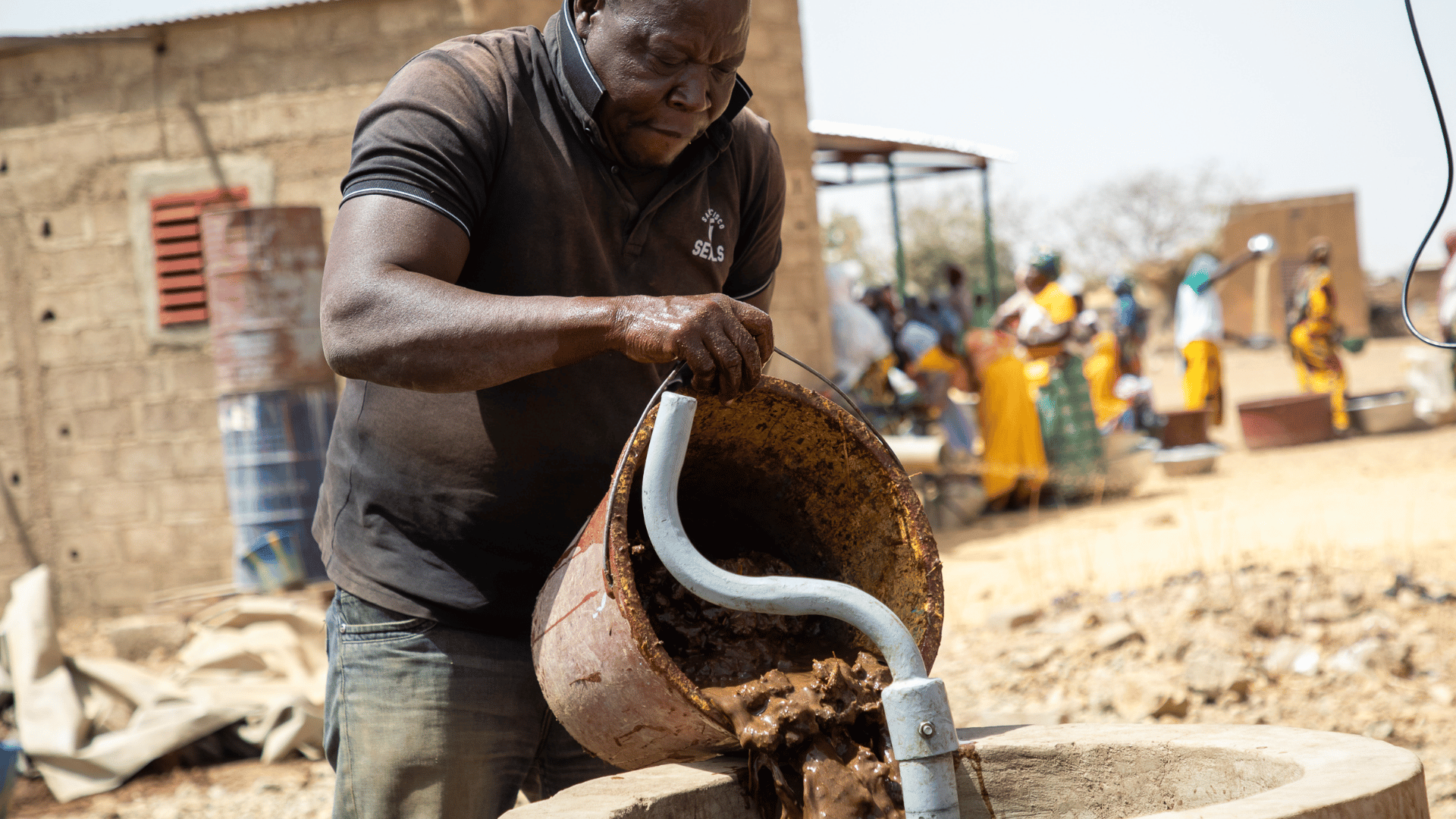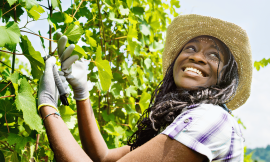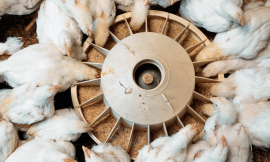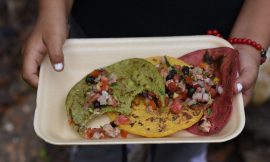In the sunbaked villages of rural Burkina Faso, where sandy soil and erratic rainfall have long held farmers in cycles of poverty and dependence, a quiet transformation is taking root — not with aid handouts or heavy machinery, but with sunlight, cooperation and smart systems thinking.
Across seven regions, farmers are breaking free from the limits of seasonal farming and fossil fuels. They are embracing clean energy technologies, from solar-powered irrigation pumps and biodigesters to improved cookstoves and cold storage units, that are helping them transition from subsistence farming to resilient, climate-resilient agribusinesses.
This transformation is being led by the Renewable Energy for Agricultural Livelihoods in Burkina Faso (REAL BF) programme, an initiative by Practical Action. Designed with farmers at the centre, the project matches renewable energy with real agricultural needs, unlocking not just higher productivity but also dignity, equity, and environmental sustainability.
Clean energy: farming beyond the rain
Burkina Faso is one of the world’s most climate-vulnerable countries. More than 80 per cent of its population depends on rain-fed agriculture. But with rainfall patterns becoming increasingly erratic, harvests are less predictable, incomes are shrinking, and food insecurity is growing.

REAL BF set out to flip this reality by embedding productive use of energy (PUE) technologies directly into local farming and processing value chains. The results, as of mid-2024, are as follows:
- 15,937 smallholder farmers reached — more than 80 per cent of them are women.
- 136 renewable energy systems installed for irrigation, lighting, processing, and cold storage.
- 115 hectares now irrigated with solar-powered water pumps.
- 180 MWh of clean energy generated annually.
- 722 tons of firewood saved—preserving 135 hectares of forest.
- CO₂ emissions reduced by more than 1,437 tons.
- Farmers earn at least 50,000 CFA francs (about USD 83) more per year.
But beyond the statistics are stories of resilience, reinvention and rural leadership.
From diesel to year-round farming
In the village of Zoungou, onion farmer Birba Issa recalls how his community’s diesel water pump would fail halfway through the season, leaving crops to dry up under the scorching sun.
“The land used to sleep during the dry season,” Birba says. “Now, with solar irrigation and biodigesters, we farm all year. The water is reliable, and our women cook faster, too.”

His cooperative now irrigates fields across all seasons, thanks to the solar pump. The addition of a biodigester has created a closed-loop system, converting livestock waste into both clean cooking gas and nutrient-rich compost for the fields.
Clean energy sparks women’s leadership
In the border town of Koulpelé, Awa Convolbo leads the Lagumtaab La Panga Cooperative, a women’s group that has shifted from firewood-based shea butter processing to solar-powered systems and improved cookstoves. After a learning exchange visit to Rwanda, Awa returned inspired and implemented stronger cooperative governance and bookkeeping systems.
“Clean energy didn’t just change how we cook—it changed how we lead,” she explains. “I now support my children’s education, and we run the cooperative like a business.”
Cold storage, warm profits
For Molle Nossira, who runs a fish processing business in Gon-Boussougou, the biggest breakthrough came in the form of a solar-powered cold room. Before, she had to sell fish early in the day before it spoiled. Now, with efficient ovens, fryers and proper storage, the cooperative can preserve fish quality, reduce losses and sell at better prices—even stocking cold drinks as a side business.
“Our business has grown, and so has our confidence,” Molle says.
A future for youth in the village

REAL BF is also working to support rural youth. Instead of migrating to cities, young people are staying and thriving. Many are now trained in solar installation, system maintenance, cooperative leadership and digital tools.
A key enabler is the Yiriwali Platform, a multilingual digital solution that connects farmers, technicians and suppliers. It helps users assess energy needs, explore financing options and identify service providers—strengthening local energy markets and making clean energy adoption practical and scalable.
Built for scale, owned by communities
One of the most distinctive features of REAL BF is its systems-based, participatory design. Technologies are co-designed for specific value chains — fish, poultry, rice, forest products — ensuring they meet actual farming and processing needs.
To ensure long-term sustainability, 80 per cent of the systems are funded through grants, with the remaining 20 per cent paid by the cooperatives themselves. This financial stake fosters ownership and accountability.
Each cooperative is supported by locally rooted management committees and governance structures. Capacity building goes hand-in-hand, covering everything from PUE technologies and routine maintenance to leadership and recordkeeping.
“These are not drop-and-go systems,” says Issouf Ouédraogo, Practical Action’s West Africa Regional Director. “We built trust, trained communities, and now they’re leading their change.”

Even site selection was guided by energy need, readiness and growth potential. In places like Gampela and Wapa, some villagers were initially sceptical. But deep consultation, transparency, and ongoing engagement turned doubt into pride and active ownership.
More than farming
The ripple effects of REAL BF reach far beyond the fields. Women are saving hours once spent collecting wood—time they now use for education, family care or income generation. Households enjoy improved food security, with many farmers now harvesting two or even three times a year.
Cleaner cooking solutions are reducing indoor air pollution and helping protect the country’s fast-dwindling forests. Local enterprises are emerging, from fresh vegetable sales to solar-powered beverage kiosks. Even compost is becoming currency, as seen in Aminata Zangré’s cooperative, where biodigesters provide both fuel and fertiliser.
Farmers are becoming agripreneurs, offering not just products, but ideas, services and leadership in their communities.
Powering a just transition through clean energy
At a time when global leaders call for urgent climate adaptation, REAL BF offers a model that can make an impact. It specifically focuses on progress towards the Sustainable Development Goals 2 (Zero Hunger), 5 (Gender Equality), 7 (Affordable Clean Energy) and 13 (Climate Action).
Most importantly, it proves that with the right tools, rural communities are not just passive recipients of aid. They are active agents of change.
“We are not just farming for food anymore,” says Nikiena Noepe, a rice farmer from Po. “We are farming with energy, dignity and hope for the next generation.”
The REAL BF programme is a scalable model for community-led adaptation. Investing in both systems and people, it shows how energy access, when rooted in real farming needs and local leadership, can unlock a future of resilience, prosperity and purpose across the Sahel and beyond.






